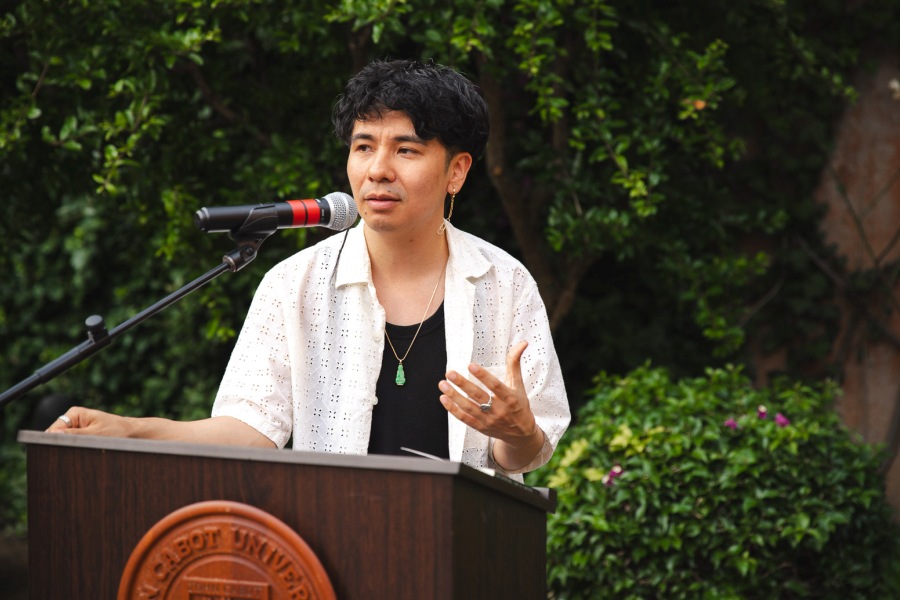JCU Communication and Media Speaker Series Presents Deep Listening: The Story of Pauline Oliveros
John Cabot University’s Department of Communication and Media Studies organized a screening of Deep Listening: The Story of Pauline Oliveros, by producer and director Daniel Weintraub, on March 13, 2024. The screening was part of the JCU Communication and Media Speaker Series and was introduced by the composer and musical educator Thollem McDonas.

Deep Listening: The Story of Pauline Oliveros is a documentary that traces the life and work of visionary American composer, musician, teacher, technological innovator, and professor of music Pauline Oliveros (1932–2016). She was one of the world’s original electronic composers and practitioners, a teacher and mentor to other composers (even those who went on to be much more celebrated than she ever did), a master accordion player, a gateway to music and sound for non-musicians and a technical innovator who helped develop everything from tools that allow musicians to play together while in different countries, to software that enables those with severe disabilities to create beautiful music. A central figure in the development of post-war experimental and electronic music, Oliveros was a founding member of the San Francisco Tape Music Center in the 1960s and served as its director. She taught music at Mills College, the University of California, San Diego (UCSD), Oberlin Conservatory of Music, and Rensselaer Polytechnic Institute.
Oliveros authored books, formulated new music theories, and investigated new ways to focus attention on music including her concepts of “deep listening” and “sonic awareness,” drawing on metaphors from cybernetics. “Deep listening,” as developed by Pauline Oliveros, explores the difference between the involuntary nature of hearing and the conscious nature of listening. The practice includes bodywork, sonic meditations, and interactive performance, as well as listening to the sounds of daily life, nature, one’s own thoughts, imagination, and dreams. It cultivates a heightened awareness of the sonic environment, both external and internal, and promotes experimentation, improvisation, collaboration, playfulness, and other creative skills vital to personal and community growth.
“The centrality of Pauline Oliveros in the way in which we think of sound and the world cannot be played down. Her work was transgressive and challenging to the gatekeepers of the musical academy and yet, that same work, was perfectly accessible to anyone with the patience to listen to the world and the life around them,” said Communications Professor Peter Sarram.





